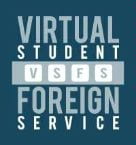 WASHINGTON – The State Department’s Office of eDiplomacy, the in-house lab for tech innovation and management, was the focus of the June CCLP Washington DC lunch forum.
WASHINGTON – The State Department’s Office of eDiplomacy, the in-house lab for tech innovation and management, was the focus of the June CCLP Washington DC lunch forum.
Richard Boly, who directs the office, said the eDiplomacy initiative has been so successful that major companies from Kimberly Clark to Nike have come to study innovations implemented in the State Department.
Noting it took diplomacy centuries to moved from wax-sealed envelopes to the telegraph (he called it diplomatic Disruptive Technology 1.0), Boly said the pace of change has compressed from years into weeks and even days. But that reflects his background in Silicon Valley, where he helped launch the Apple Macintosh.
Boly pointed to one example, Deskipedia, as a potentially disruptive technology for U.S. diplomats. Instead of a centrally created repository of procedures and background, Deskipedia allows anyone, anywhere in State, to input information about her or his current or recent assignment. And with diplomats changing posts every few years, there is an urgent need for what he described as “open, easily searchable institutional memory.”
Another example is Diplopedia, an online collaborative tool running on a State Department intranet. Boly said it was critical during the Haiti earthquake, when the Diplopedia earthquake page combined everything from links to live reporting from diplomats and from Google News to continually updated contact lists and resource guides. This replaced paper documents and newsletters and was essential in controlling rumors.
Under the umbrella title of Communities@State, the eDiplomacy office also created platforms to enable and encourage internal networks and social groups for everyone from locally employed staff (how do you file for US taxes?) to headquarters staff looking for bike shares.
One of the largest is Corridor, a network for sharing unclassified expertise. With a layout resembling Facebook, Corridor posts such user comments as “Learning French for my first tour overseas! Does anyone want to practice together over lunch tomorrow?” and “Working on a Diplopedia article about Military Training.” Anyone can offer to help or point to resources for colleagues.
One new project is the Virtual Student Foreign Service initiative. Aware that most university students do not have the resources to take a three-month (or three-week) posting at a U.S. embassy or consulate overseas, VSFS enables students to take part in eInternships without leaving their college campus. There is even a short YouTube video to introduce students to the program. Students apply in July and receive appointments for fall and spring, when they are expected to work from five to ten hours a week on projects ranging from human rights and the environment to creating social media tools and pubic information campaigns. Boly said there are now 190 VSFS projects in countries ranging from China and Russia to Angola and Peru.
Service initiative. Aware that most university students do not have the resources to take a three-month (or three-week) posting at a U.S. embassy or consulate overseas, VSFS enables students to take part in eInternships without leaving their college campus. There is even a short YouTube video to introduce students to the program. Students apply in July and receive appointments for fall and spring, when they are expected to work from five to ten hours a week on projects ranging from human rights and the environment to creating social media tools and pubic information campaigns. Boly said there are now 190 VSFS projects in countries ranging from China and Russia to Angola and Peru.
Can’t spend five hours a week on an eInternship? No problem: the eDiplomacy office is creating “microvolunteering” opportunities that will require students to spend very short periods of time working on projects – from as little as three hours or even three minutes. Opportunities will be created all year, and students will be able to apply whenever they want, not just in the summer.
Boly also runs regular State Department “tech camps”, short, intense retreats focusing on a particular problem or opportunity. This month’s tech camp was “Moneyball Diplomacy,” a title taken from book and movie about money and baseball. The agenda included presentations from outsiders from such organizations as the World Bank and The Economist – and the author of The Black Swan. The tech camp ended with a Happy Hour to facilitate further interaction.
If this seems a departure from the traditional striped-pants image of diplomacy, it is, and deliberately so. It also has attracted attention from private industry, which Boly finds gratifying.
“After all,” he said, “how often has Nike come to the State Department to learn about innovation?”